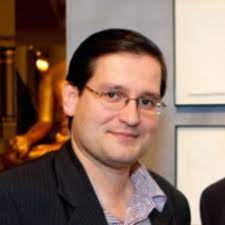There was a revolting tabloid quality to the Oval Office reception given to Ukrainian President Volodymyr Zelenskyy on 28 February, but then his US counterpart Donald Trump is a tabloid brute, a man incarnated from the nastiest, shallowest precepts of yellow press clippings and, ultimately, the reality television empire that gave him a crown and forever enshrined him in the culture of brash Americana. From the foamy cable television rot of the republic, Trump’s progress was inexorable.
With such ingredients, the White House has become a studio, with the statesmanship of the bullying show paramount. The electors are to be entertained by what might be called Colosseum politics. They want bread, but are very keen on the circuses. They want season tickets to the MAGA tent where they can witness muscular events. They want to know that the US will recoup what it gives, with interest; to do the “deals” so beloved of Trump.
When the satirically gifted Hugh Hector Munro (pen name “Saki”) warned that being a pioneer was never wise, seeing as the early Christian tended to get the fattest lion, it would be better to say that the lions in the White House on Friday – Trump and his stormtrooper deputy JD Vance – seemed to have been on lettuce offerings and stale water for a week. The lean, mean duo were remorselessly and disgracefully hungry, and made sure that the Ukrainian leader was subject to a battering that proved unusually long. These Oval office press briefings are usually short, snappy matters, with some anodyne questions followed by a few general remarks that barely cause a ripple on the world stage.
It was also evident that Zelenskyy had not seen the briefing memo about Trump.
Prompting Marek Magierowski in the National Interest to describe him as “a worse psychologist than [French President] Emmanuel Macron and [UK Prime Minister Keir Starmer], who had paid a visit to the White House just before him and, to some extent, ‘charmed’ the US president.”
READ: US approves $3 billion in military sale to Israel amid ceasefire talks
Unlike the two leaders ahead of him in the Oval Office queue, Zelenskyy thought it wise to engage in a squabble about Russian intentions and the character of Russia’s Vladimir Putin, the factual record that is (always dangerous in dealing with Trump, who regards facts as, at best, malleable), in a duel that saw Vance weigh in. According to the Vice President, the Ukrainian leader was not there to “litigate” the matter before the American public, which is precisely what he and Trump seemed to be doing. This was the language of prefects and school masters, with the student reluctant to play along.
It was a salient reminder that support for Ukraine has iced over under Trump; that it is no longer the blue-eyed boy of US politics, Western civilisation’s consecrated prop against Russian savagery. South Carolina’s Republican Senator Lindsey Graham even went so far as to demand that the Ukrainian leader “either… resign and send somebody over and we can do business with, or he needs to change.”
Trump’s opponents have fumed at the president for having laid an ambush for the Ukrainian leader and promoting Russian talking points, naturally exonerating previous administrations for their contributory role (former Assistant Secretary of State Victoria Nuland’s intervention comes to mind) in feeding the conflict. “Zelenskyy flew to Washington,” quipped Massachusetts Democrat Representative Jake Auchincloss, “but he walked into the Kremlin.”
What remains crudely apparent is that Zelenskyy had been given ample warning about what awaited but seemingly failed to see the billowing smoke signals.
At a Saudi-sponsored investment meeting in Florida, Trump had declared that the Ukrainian leader was only “really good” at one thing: “playing Joe Biden like a fiddle.” He was also a “dictator” who had refused to have elections. “He’s low in the Ukrainian polls. How can you be high with every city being demolished?”
![People hold banners as they gather to demonstrate against the recent exchange between US President Donald Trump and Ukrainian President Volodymyr Zelenskyy near Water Tower in Chicago, Illinois, United States on March 2, 2025. [Jacek Boczarski - Anadolu Agency]](https://i0.wp.com/www.middleeastmonitor.com/wp-content/uploads/2025/03/AA-20250303-37221063-37221050-PROTESTERS_RALLY_IN_CHICAGO_AGAINST_USUKRAINE_PRESIDENTIAL_EXCHANGE.jpg?resize=1200%2C795&ssl=1)
People hold banners as they gather to demonstrate against the recent exchange between US President Donald Trump and Ukrainian President Volodymyr Zelenskyy near Water Tower in Chicago, Illinois, United States on March 2, 2025. [Jacek Boczarski – Anadolu Agency]
That the plant was also conveniently located in a battleground state that the presidential contenders had to win hardly helped his case in the Oval Office arena. Vance could not resist unsheathing his gladiatorial sword. “You went to Pennsylvania and campaigned for the opposition in October,” he snapped. “Offer some words of appreciation for the United States of America and the president who is trying to save your country.”
As a result of colosseum politics, no deals were reached, and certainly not one regarding US access to Ukrainian rare earth minerals, leaving Zelenskyy to seek solace in the bosom of weak European powers unhinged by the values of Trumpland. The lustre of the cause, at least across the pond, has not entirely vanished, although European support is hardly likely to swing matters on or off the battlefield for Kyiv.
READ: Israel lobbying US to retain Russia’s presence in Syria to counter Turkiye’s influence
The views expressed in this article belong to the author and do not necessarily reflect the editorial policy of Middle East Monitor.


![President Donald J Trump meets with Ukrainian President Volodymyr Zelenskyy in the Oval Office at the White House on Friday, Feb 28, 2025 in Washington, DC. [Jabin Botsford/The Washington Post via Getty Images]](https://i0.wp.com/www.middleeastmonitor.com/wp-content/uploads/2025/03/GettyImages-2201963783.jpg?fit=1200%2C800&ssl=1)








